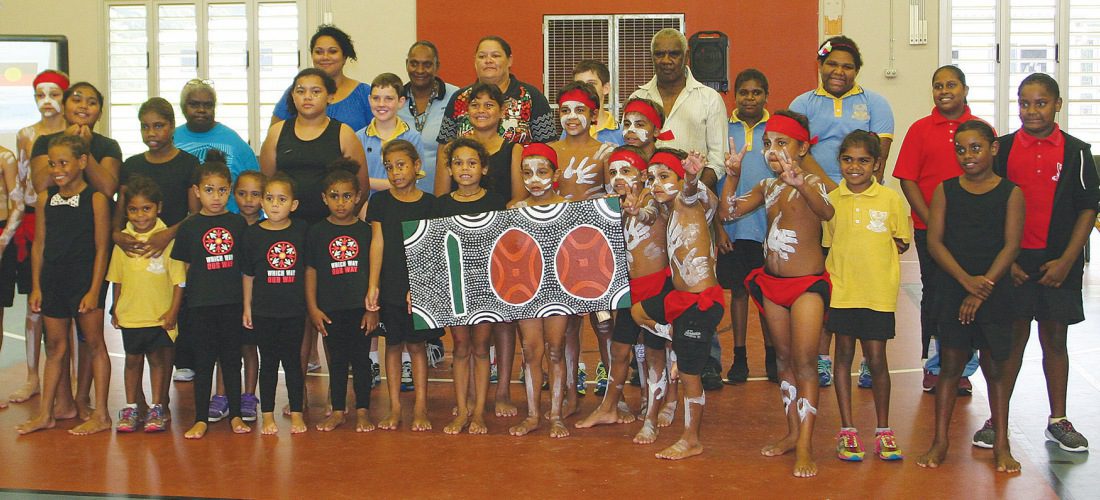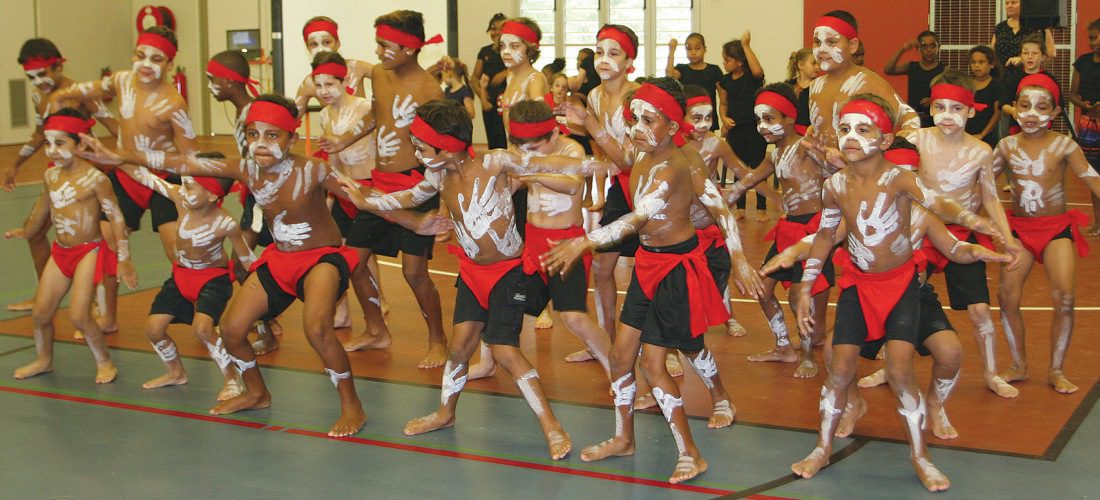In 2016, the mortality rate of Indigenous babies was roughly twice that of non-Indigenous babies. That’s 50% more Indigenous children who will never start school.
For Tully State School in Northern Queensland, this wasn’t good enough. So they did something about it. Early last year, they celebrated National Close the Gap Day with a special assembly involving students, teachers and the community. They were joining in with over 300 other schools and 100,000 students and teachers who were hosting their own Close the Gap Day events around the country.
For Tully State School, their event was not only a day of learning and celebration but also the chance to honour the 100th birthday of local Indigenous Elder, Mamie Grant.
“Indigenous culture, history and disadvantage is not spoken of enough,” said Shane Muriata, Community Liaison Engagement Officer at Tully State School.
“But this assembly really got the attention of whole community. Every student, teacher and community member felt a connection to the cause.”
“The students were given ownership over the event – they felt that it was theirs. With such an important story to tell, we were really glad we got it right.”
In the lead up to the assembly, students were engaging in Close the Gap. They practiced traditional dance after their weekly homework club, and made boomerangs and spears, all for the upcoming performance.
Tully State School chose dance to celebrate Aboriginal and Torres Strait Islander culture for their special assembly. Students performed a traditional dance, dressed in traditional garments and body paint. Teachers and student leaders also made speeches at the assembly highlighting the history of struggle for Indigenous rights, paying homage to the Indigenous leaders and activists who paved the way for equality throughout Australian history.
Muriata was particularly concerned with dispelling misunderstandings and myths about Indigenous disadvantage. “There were lots of people, Indigenous and non-Indigenous, who didn’t understand the importance of Close the Gap – I’d say as many as 60-70% of students didn’t fully grasp it,” he said. “Until you understand the history, the programs that our school runs for Indigenous people might be misunderstood as special treatment.”
“The purpose of this assembly was to educate students on the gap that exists between Indigenous and non-Indigenous Australians and why we must close it, and I think we were very successful in getting that message across. We still have a way to go, as a community and as a nation. We must keep having the conversation. But we have really connected the Tully community to this issue, by speaking the message of working together.”
 Photo Credits: The Tully Times
Photo Credits: The Tully Times
National Close the Gap Day is Australia’s largest campaign for Indigenous health equality. It aims to teach students about Indigenous disadvantage, to help them do something about this injustice, and to show our politicians that our future generations want to see health equality made a reality.
Register now and receive a number of free resources to help your school plan a National Close the Gap Day event. These include a How-To Guide, chatterboxes, pledge forms and more.
To prepare for the 2017 campaign register your school now to stay updated. You can also supplement learning by using our Australian Curriculum-aligned resources.
Indigenous health inequality is unfair, and it needs to change. Let’s join together as a nation and Close the Gap in 2017!



